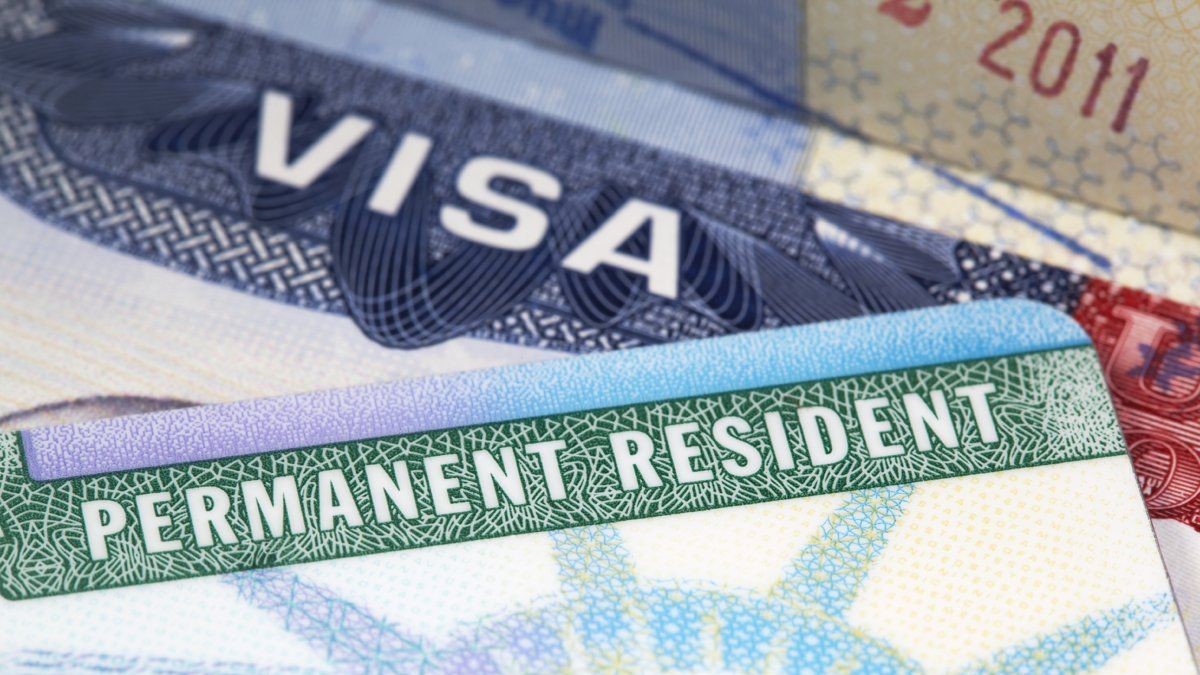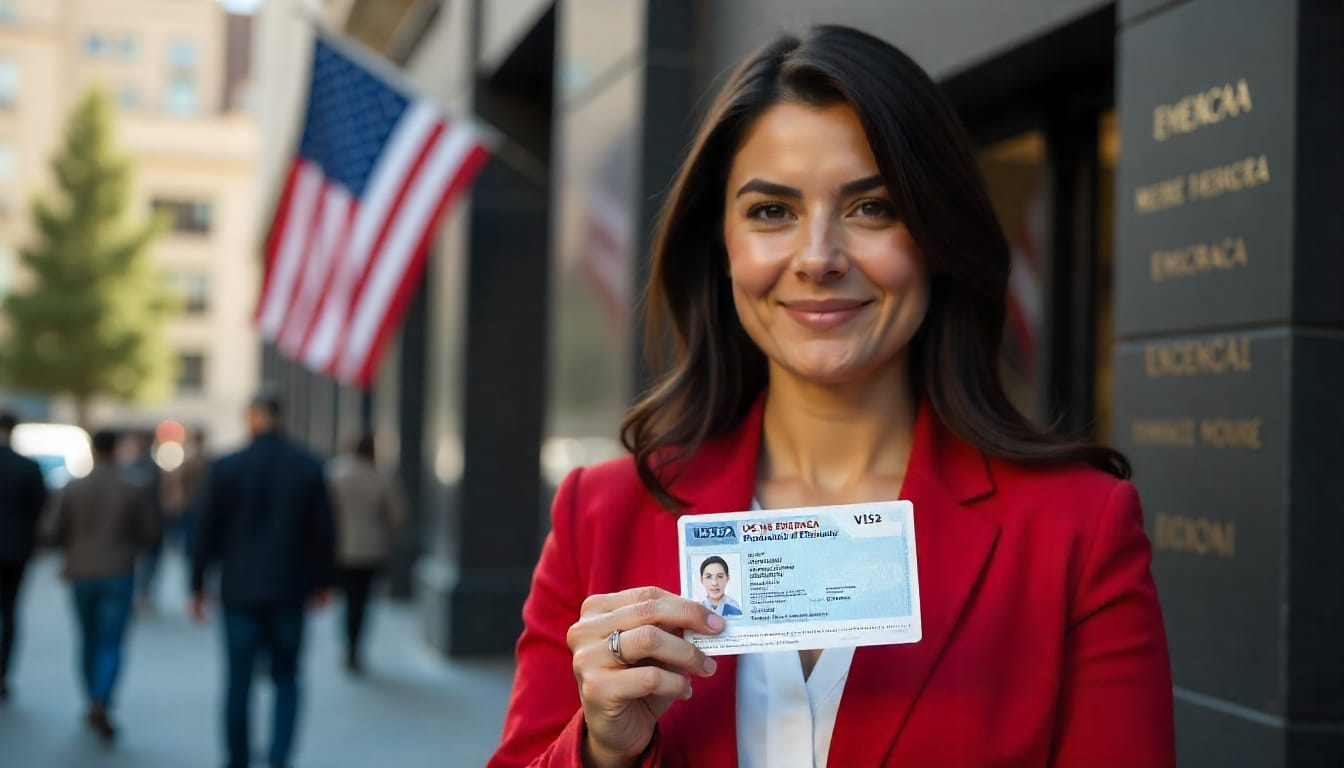Curious about the EB1 green card criteria? Learn about EB1 requirements, eligibility, extraordinary ability, filing rules, and EB1 visa processing time (including India). This guide explains everything from EB1A qualifications to visa validity and citizenship pathways.

If you’ve ever thought about living and working permanently in the U.S., chances are you’ve heard whispers about the EB1 green card criteria. It’s often called the “fast lane” for permanent residency because it’s reserved for the best of the best. But what does “extraordinary ability” really mean? Is it only for Nobel Prize winners or Fortune 500 executives? Not at all. That’s where things get interesting.
At Beyond Border, we’ve worked with founders, scientists, artists, and executives who all had very different stories but one thing in common, they matched the EB1 requirements in ways they never imagined possible. You might be surprised to learn that your achievements already place you closer to eligibility than you think.
The EB1 visa USA is part of the employment-based green card system. Unlike other categories, it doesn’t require years of waiting for most applicants. It’s broken down into three groups. First, there’s EB1A extraordinary ability green card applicants, individuals who can prove they’re at the very top of their field. Second, EB1B for outstanding professors and researchers. And third, EB1C for multinational executives or managers moving to U.S. branches of global companies.
If you’re wondering what an extraordinary ability green card is, it’s the EB1A. It gives freedom that no other category offers: you can file on your own without a job offer. That’s a huge deal if you want flexibility or are working across multiple opportunities.
The eligibility criteria for EB1 green card are tough but not impossible. USCIS wants proof that you’re not just good, you’re among the best in your field. Think of it as evidence that others recognize your success in a measurable way.
Here are some of the EB1 green card qualifications USCIS looks for:
You don’t need to meet all criteria, but the stronger your mix of evidence, the better. This is where Beyond Border helps, you might overlook achievements that actually carry huge weight in an EB1 case.
When it comes to EB1 requirements, USCIS expects more than just a CV. They want to see proof of sustained national or international recognition. That means your success isn’t a one-time win, it’s consistent.
Here’s how we usually explain it: if you’re the kind of person who can walk into a room of peers and be instantly recognized for your contributions, you’re on the right track. For example, a tech founder whose platform changed how thousands of users operate, or an artist whose work has been exhibited across continents.
Pro tip: Don’t underestimate smaller achievements. If you’ve been quoted in respected media, received industry awards, or served as a judge for competitions, these can all strengthen your EB1 filing requirements. With our guidance at Beyond Border, we’ll help you present them in the strongest way possible.

The EB1A extraordinary ability green card is unique because it doesn’t tie you to one employer. You can self-petition, which means you control your own destiny. This is perfect for entrepreneurs, freelancers, and creatives.
Imagine you’re a startup founder. You built a product that attracted global users and won an innovation award. Even if you don’t have a U.S. job offer, you can still qualify. Or take the example of a scientist whose papers are cited worldwide, USCIS sees that as extraordinary ability.
This path is also open to athletes, researchers, doctors, or executives who’ve reached the top tier in their professions. At Beyond Border, we’ve seen firsthand how diverse these profiles can be. The beauty of EB1A is that it’s about recognition, not titles.
You may wonder what counts as extraordinary. Let’s simplify with real-world style examples.
These EB1 extraordinary ability examples show it’s not just about fame, it’s about measurable impact. What matters is proving your work is original, influential, and recognized beyond just your immediate circle.
Now let’s talk about timelines. The EB1 visa processing time depends on many factors, including your country of birth. On average, standard processing takes 8–12 months. But there’s good news: you can request premium processing, which cuts the wait down to 15 calendar days for the petition stage.
For applicants from countries like India, things can be slower due to backlogs. The EB1 processing time for India may stretch longer, depending on priority dates listed in the monthly visa bulletin. That’s why strategy is key, filing at the right time and keeping track of dates can make or break your process.
At Beyond Border, we keep clients updated on these shifts so they’re never caught off guard.
Once approved, your EB1 visa validity is permanent residency. In other words, you get a green card. That means you can live, work, and study anywhere in the U.S. without restrictions. But many ask: is a green card equal to citizenship? The answer is no.
A green card holder in USA gets nearly all the rights of a citizen, but voting and certain federal jobs are reserved for U.S. citizens. The good news? After holding your EB1 green card for five years, you can apply for naturalization. So yes, EB1 is one of the fastest routes to eventual citizenship.
So, who actually qualifies? Let’s make it simple.
If you see yourself in any of these profiles, you may meet the EB1 green card eligibility standards. What sets candidates apart is not just talent but being able to prove that talent with evidence. Beyond Border specializes in helping applicants identify the right documents, from contracts to press mentions, to build a solid case.
The paperwork for EB1 filing requirements can feel overwhelming. USCIS demands precise evidence, and missing details can delay or sink an application. That’s why organization is everything.
Here’s what’s usually needed: proof of your achievements, letters of recommendation, detailed CV, supporting contracts, and government forms like I-140. For EB1A, you don’t need an employer, but you must show you’ll keep working in your field once in the U.S.
We’ve seen applicants spend months trying to piece it together themselves, only to get stuck. With Beyond Border, we handle this complexity, so you can focus on highlighting your actual achievements.
A lot of myths circulate about EB1 rules. Some think you need a Nobel Prize. Others believe only billionaires or celebrities qualify. The reality is far broader.
We’ve worked with professionals in mid-career stages, not just global icons. What matters is that you can show your achievements are recognized by others, and that they’ve had a real-world impact. If you think you’re “not famous enough,” don’t rule yourself out yet.
The EB1 green card criteria are demanding, but they’re also designed to attract global talent to the U.S. If you’ve built something meaningful, made a breakthrough in research, or left your mark in your field, you might be closer to eligibility than you realize.
At Beyond Border, we’ve guided countless applicants through this journey. We help you uncover achievements you may not even consider evidence and present them in a way that USCIS recognizes. This process is not just about filing paperwork, it’s about telling your story.
If you believe you could qualify, don’t wait. Start evaluating your profile today, and when you’re ready, let’s take that next step together.